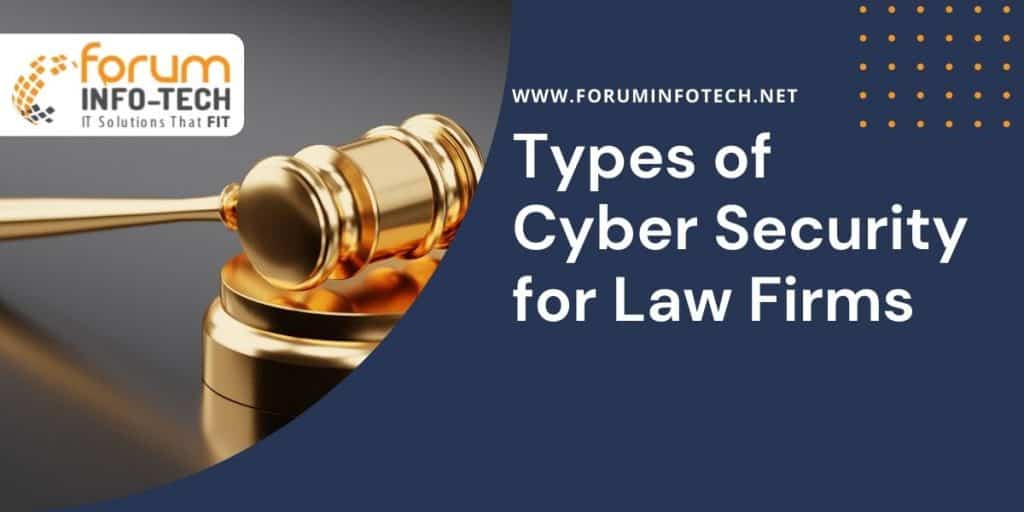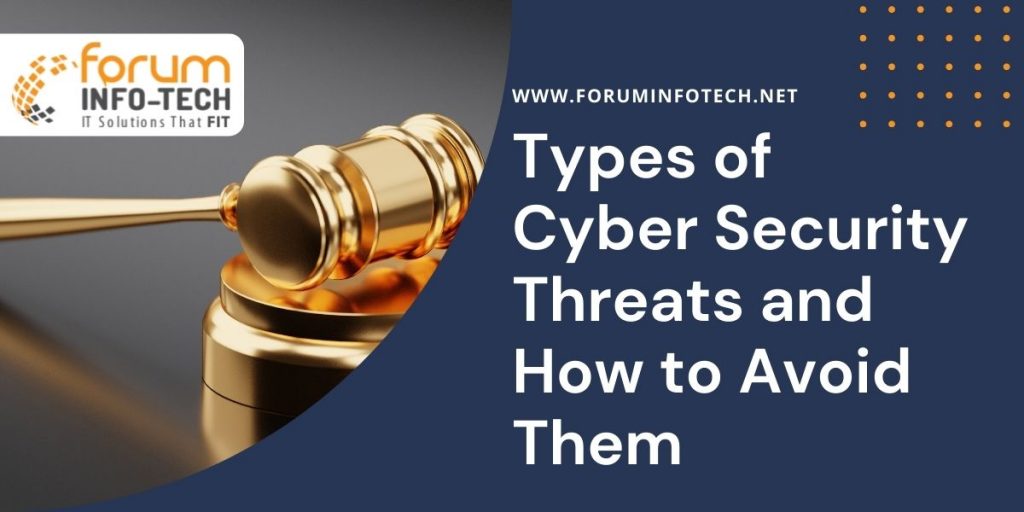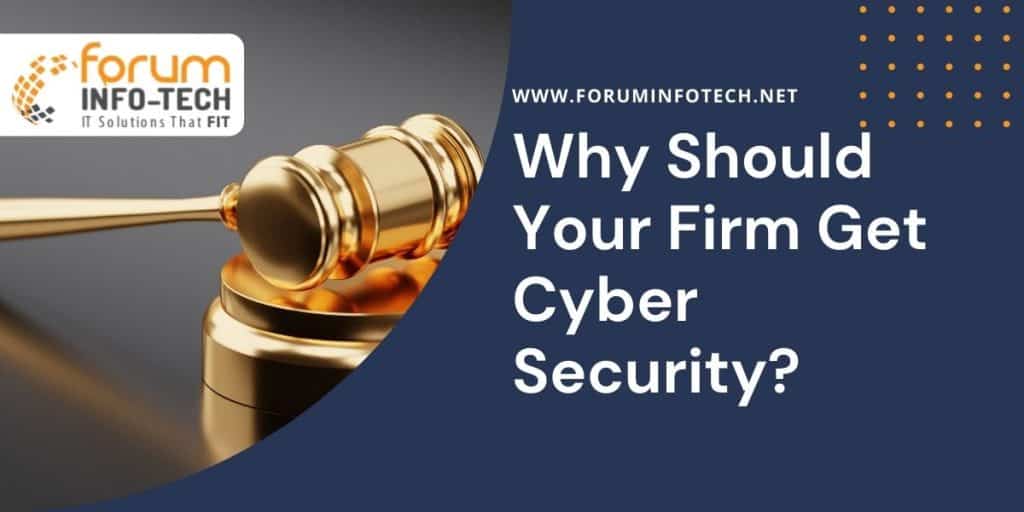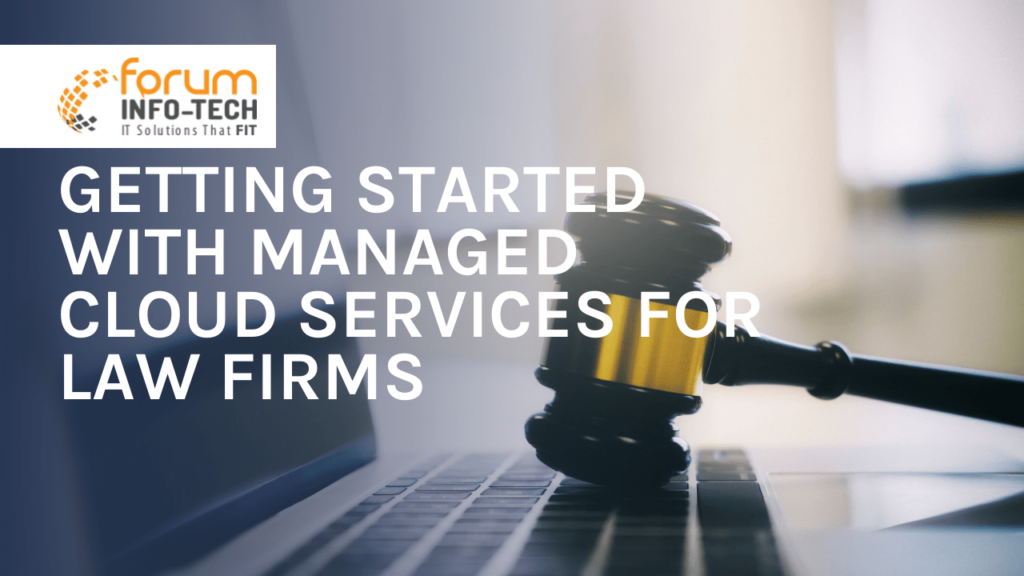The world has progressed in many ways and similarly, so have crimes. While theft and burglary still run rampage, a new form of crime has emerged – cybercrime.
These crimes can happen anywhere, any time, and anyone can be behind them. But as human beings, we also have the instinct to protect ourselves.
You can protect yourself from the horrors of cybercrime by investing in cyber security. This is especially important for corporations and organizations likely to be targeted, such as law firms.
What is Cyber Security?
Cyber security uses technology, policies, and procedures to protect against cyberattacks on systems, networks, programs, systems, devices, and data.
Its goal is to limit the risk of cyber assaults and safeguard against unauthorized systems, networks, and technology.
Cybersecurity is crucial because it safeguards all types of data against theft and loss. Major law firms handle massive volumes of sensitive data and trust their clients to keep it secret and safe.
A possible leak of this data resulting from a cyber-attack might severely damage a firm’s hard-earned reputation in the legal business.
All included are sensitive data, personally identifiable information (PII), protected health information (PHI), personal information, intellectual property, data, and government and business information systems.
To protect yourself and your firm, you should invest in cyber security.
Is Cyber Security an Issue for Law Firms?
Cyber assaults and data security vulnerabilities are frequently in the headlines, so much so that we appear to have gotten indifferent to the subject.
If a lawyer’s or a client’s personal information is available on the internet, it is more than probable that someone somewhere has it.
This is why law firms must prioritize cybersecurity. The internet is enormous, full of evil actors with much worse motives, and it is all too easy for them to access any information they desire.
This problem is exacerbated when technologically inexperienced consumers are forced to enter a digital-first environment, as we are presently seeing due to the ongoing worldwide pandemic.
When you combine that with the legal industry’s already lax cybersecurity posture, it’s surprising that 2020 didn’t wreak havoc on law firms’ computer assets.
Everything You Need to Know About Cyber Security
Information technology security is critical in today’s world. We spend the majority of our time online and connected via numerous gadgets.
So, how can you know if your company’s or your personal information is safe? This is when your security infrastructure comes into play.
It never hurts to get professional counsel from a third party, which is why we prepared this guide to provide you with the knowledge you need to battle any cyber assault.

Types of Cyber Security

If you’re looking to invest in cyber security for your law firm, the first thing you will need to do is figure out which type of cyber security would suit your firm among the many available.
Cyber Cloud Security
The majority of our internet activity is saved on the cloud. I haven’t saved anything to my hard drive in a long time.
For storage, most individuals utilize online services such as Microsoft OneDrive, Dropbox, Apple iCloud, Google Drive, etc.
Because of the vast volumes of data kept on these platforms, they must stay safe at all times. Cloud security can also refer to commercial services stored in a data center.
Consider the end-user interface, data storage security, backup strategies, and human error that exposes the network to ensure suitable cloud security measures are in place.
Network Cyber Security
This form of security refers to safeguarding your computer network against threats both within and outside the network.
It utilizes a variety of approaches to avoid malicious malware or other data breaches. Network security employs a variety of protocols to prevent attacks while allowing authorized users access to the secure network.
A firewall, which functions as a protective barrier between your network and external, untrusted network connections, is one of the most crucial layers to safeguard your network.
Based on security settings, a firewall can block or allow network traffic.
Email security is the most critical aspect in constructing a safe network since phishing assaults are the most prevalent type of cybercrime.
Email security might include software that scans incoming and outgoing messages for suspected phishing attempts.
Operational Cyber Security
This phrase refers to the risk management procedure for all internal cybersecurity.
This management often employs several risk management officers to guarantee a backup plan if a user’s data is hacked.
Employees must be taught the best practices for keeping personal and commercial information safe as part of operational security.
Application Cyber Security
This is the process of safeguarding sensitive data at the app level. Law firms should put the majority of these security measures in place before the application is launched.
Application security may entail techniques such as requesting a strong password from the user.
It may also incorporate features such as two-step authentication, security questions, and other safeguards to guarantee that a user is who they claim to be.
Types of Cyber Security Threats and How to Avoid Them

As important as it is to know the types of cyber security you can avail, it’s just as essential to make a note of the possible threats to your cyber security and how you can curtail them.
You may also view the destination webpage by hovering over the link. Install an anti-phishing email security tool to check incoming emails for viruses, harmful code, and suspicious links.
Drive-By Downloads
This is one of the most harmful assaults since it is frequently not the result of human mistakes or input.
These assaults can occur without the user’s knowledge or consent and without clicking on anything suspicious.
A drive-by download is typically obtained by mistake from a website. When a person visits a website, the software is installed in their system without their knowledge.
Installing anti-virus software that can identify these applications before they are downloaded to the user’s computer is the best approach to prevent this assault.
The most common forms of anti-virus software will detect the danger and quarantine it before it causes any harm.
Denial of Service Attacks
A denial-of-service assault is a sort of cyber attack frequently carried out against businesses or large computer systems.
These cyber-attacks are carried out by inundating a network or data center with massive traffic volumes to slow down their systems and prevent them from providing regular services to legitimate customers.
Once the system is rendered inoperable, a cyber attacker may attempt to acquire access to critical information.
The most straightforward approach to prevent these attacks is to use various network security protocols. The attack may include firewalls, VPNs, content filters, email scanning systems, and other load-balancing mechanisms.
To prevent unauthorized access to the servers, you should reduce as much human error as feasible.
Man-In-The-Middle Attack
A man-in-the-middle attack is carried out by placing software or a threat between the victim and the targeted entity the victim is attempting to reach.
For example, if a user attempts to connect to their Google Drive for Business account, a MITM attack software is placed in the way.
The user will inadvertently enter their Google credentials into the malicious program. After that, the infected application will obtain access to their account.
One straightforward approach to avoid these attacks is to ensure that every website you visit begins with HTTPS. The ‘S’ character is the most crucial since it signifies that the website is secure.
Another preventive measure is to avoid connecting to public WiFi hotspots. Many attackers can intercept your personal information since they do not require a security key to log in.
Attacks Using Phishing
These attacks are often carried out by sending many emails to various recipients, suggesting that they click a bogus link or supply important information.
A phishing email can sometimes be disguised as a reputable and trustworthy software product, such as Microsoft, Samsung, or Apple.
The sender will frequently ask you to click a link and enter your password, which they will steal and exploit to get access to your accounts.
The most straightforward strategy to avoid phishing attempts is to monitor your emails regularly and look at the sender’s email address before clicking on anything.
It is most likely a scam email if it looks significantly different from a usual email address, such as with many letters following it.
Malware
Malware is an abbreviation for harmful software, and several sorts might harm your computer system.
The most effective approach to avoid malware assaults on your computer system is to exercise caution when using the internet.
Never click on any shady website, popup, or email. You should also install and maintain anti-malware software up to date.
You’ve probably heard of the phrases trojan, worm, and virus. These words describe the process by which malware infects your computer.
Worm
A worm is a single piece of software that replicates and spreads from computer to computer.
Trojan
This malicious malware does not reproduce itself, but it masquerades as an application that the user would ordinarily install.
When the user clicks on the bogus executable file, the malware gets installed on the user’s hard drive and begins causing damage from there.
Virus
A solitary software application is used as the vehicle for this form of malware assault. The virus injects malicious code into the software, forcing it to perform hostile acts against the user’s computer system.
Spyware
This sort of cyber threat spies on unwary users and collects data from their computer systems without their knowledge.
Spyware may sometimes log your keystrokes or monitor the information you send and receive online.
Attack on Passwords
A password is the most popular method of security that every user utilizes. We use them to access our laptops, phones, and music players.
The use of social engineering to break into a user’s account is a prevalent sort of password assault. This might be sending a phishing email, monitoring social media accounts, or just watching your back while you type.
The easiest approach to avoid password assault is to use strong passwords and change them frequently.
Special characters, digits, and lower and upper case letters should all be included in your passwords. Never use the same password for more than one account.
Why Should Your Firm Get Cyber Security?

Being attentive about cybersecurity at your legal company comes down to educating yourself and your staff on what to look for. Taking the “it won’t happen to me” mindset is no longer acceptable.
Being aware of various social engineering, such as phishing assaults, in which someone tries to penetrate your network by having you click on a link containing malware, may make you or your staff think twice before following a link in that strange email request.
Larger corporations can even engage companies to conduct simulated assaults to educate people on what they should and should not click on.
While cybersecurity may appear to be the last thing on anyone’s daily to-do list, it is increasingly necessary for individuals to understand how to defend themselves online.
These basic practices, such as avoiding using personal devices for work, frequently upgrading your passwords, and educating yourself on social engineering attacks, may make a significant impact on your cyber defenses.

